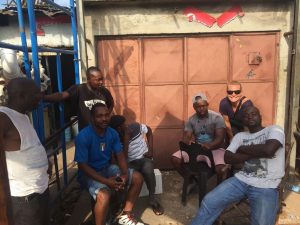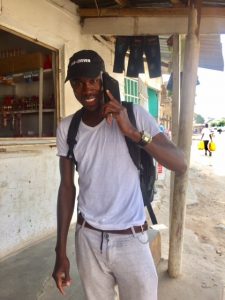A few weeks ago we concluded our user experience research in Mozambique. One thing I will never forget is the number of mango trees in Maputo. The vast majority of households have at the minimum one mango tree if not more and each mango tree has hundreds of mangos. Mozambique would be mango heaven for so many Europeans, yet for Mozambicans this is just another fruit which they eat only when they are extremely hungry.
One would think that at least for few months Mozambicans should have good intake of vitamins by eating either fresh or dried mangos. However, one quickly learns that due to NGOs who taught people that drying mangoes is unhygienic, people don’t dry mangoes and hence most go to waste.
However after visiting Zambia and experiencing their eating habits, I was positively surprised by the eating habits of Mozambicans. In Zambia, the southern part of the country eats diversified food (mainly nshima (maize meal), ground nuts, cassava leafs and pumpkin with occasional meat or fish) while the northern part eat mainly nshima, meat and fish. The only vegetable dish that the north side of the country seem to eat is called Matapa, vegetarian dish that takes five hours to prepare. Due to the time taken to prepare, families will only eat this meal once a week on Saturdays.
Mobile: The world of data enabled feature and smart phones
Despite the proximity of Zambia and Mozambique, there are vast differences further to nutritional habits. The difference in mobile coverage and ownership is also drastically different. In Zambia the penetration of smart and feature phones is extremely low. When you finally find users who own one they either don’t have data, or worse, no battery given that they have a battery life of a day or two and are charged only every seven days due to a lack of electricity and its high costs.
Reality is entirely different in Mozambique. People in urban areas (even low income) not only have functioning feature and smart phones, but more importantly they all have active data plans. Most use ‘WhatsApp’ on a regular basis and further more they are all aware of digital payments. With low data costs in Mozambique most calls and messaging is done over data channels. Vodacom seem to be a buzz word that everyone loves using, even though in rural areas Movitel have better coverage by far.
Why is all this important?
Meet Roberto – he is 22 years old and lives in Nampula. He lives away from his family and works at the local market to earn his living. He found an amazing deal at Vodacom where he bought a huge non branded smart phone. He uses it for calling, messaging but mostly for WhatsApp and Facebook.
Roberto relies on the information that his friends share with him. Even though he has an amazing phone, no problems with battery charging and an active data plan, he rarely uses it beyond social media, as he just doesn’t know how to.
Roberto would love to learn more about life; things that his parents didn’t share with him since he moved away from the family when he was very young. Roberto struggles to find reliable sources of information. If he could stay anonymous he would love to join a ‘WhatsApp’ like app where he could chat about any open questions. One being, “Do condoms really spread HIV?”.
So while Roberto is the owner of an incredible smart phone he still has questions that one could easily find online. How can we educate users on mobile phone usage beyond Facebook and WhatsApp’? More so, how can we educate people to use the internet to access the unlimited amount of knowledge that currently exists?
While using SMS and IVR as a channel of information would mean that everyone with a mobile phone, literate and illiterate can have access to the information, using data would be a much more informative and cost effective way.
Reasons behind this?
- From channel cost perspective: data is perceived to be cheaper than IVR, SMS and USSD;
- Coverage in Mozambique is very good. In addition, the penetration rate of data enabled feature phones and smart phones is very high compared to Mozambique;
- Lack of electricity is not as big of a problem as it is in Zambia;
- From the end users perspective, data is cheap which means most people have active data plans and know how to use data; and
- Above all, user experience is just better and so much more can be communicated.
Personally I would say going forward, what we need is an end-user education. If you are my age you might remember Google and its ads: ‘Google knows everything.’ It is time we do similar campaigns in Africa.



